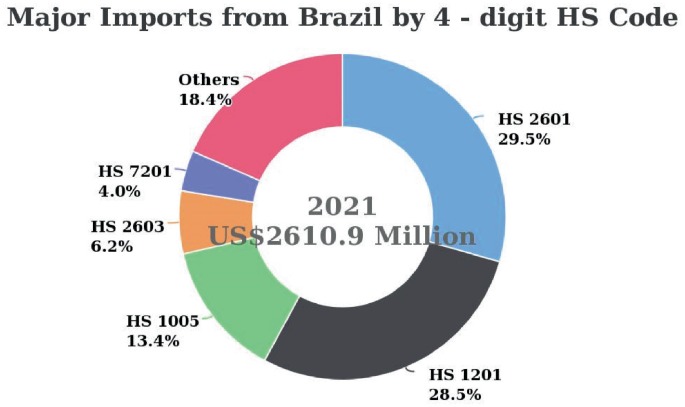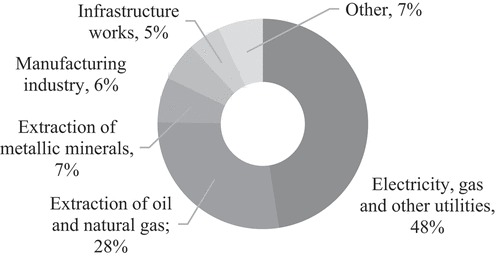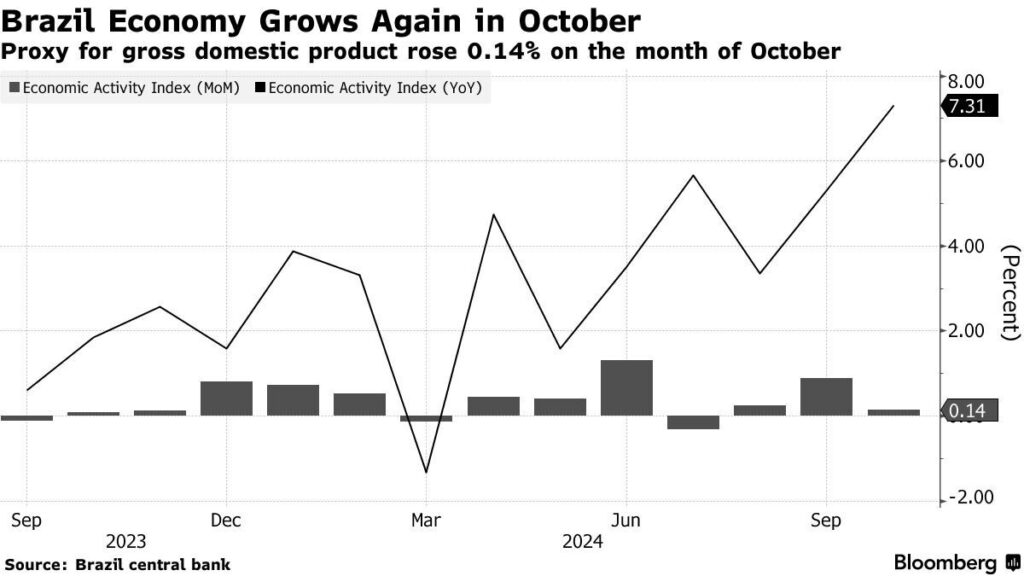The Belt and Road Initiative (BRI), launched by China in 2013, focuses on boosting global trade and economic growth through infrastructure projects. However, Brazilian business groups have varying views on this initiative. Some see it as a valuable opportunity for investment and development, while others are cautious due to concerns about China’s influence.
Stay tuned as we explore why Brazilian business groups have mixed opinions about the Belt and Road Initiative (BRI). We’ll discuss the factors influencing their views and how the BRI impacts Brazil’s future. Don’t miss this important insight into Brazil’s economic and geopolitical landscape.
What Is the Belt And Road Initiative (BRI)?
To better understand the context of Brazil’s mixed perception of the BRI, it’s important to first explore what the Belt and Road Initiative (BRI) actually entails. Launched by China in 2013, the BRI aims to enhance global trade and economic connectivity by building infrastructure networks across Asia, Africa, Europe, and Latin America.

By investing in large-scale projects such as roads, railways, ports, and energy facilities, China hopes to foster economic growth in partner countries while solidifying its geopolitical influence.
Brazil’s Role In The BRI – A Strategic Partnership!
When considering Brazil’s role in the Belt and Road Initiative (BRI), it’s important to understand its position as the largest economy in Latin America and a significant player in global trade. Brazil’s abundant natural resources make it an attractive market for Chinese investments.
However, the relationship between Brazil and China is shaped by a mix of political shifts, historical factors, and concerns over sovereignty and economic dependence. These complexities highlight why Brazil’s involvement in the BRI remains controversial.
Read: Premium Business Travel Services – Make Every Trip Effortless & Luxurious!
Why Do Brazilian Business Groups Have Mixed Perception Of The Bri.?
To better understand the mixed perceptions of Brazilian business groups towards the BRI, it’s important to consider several factors that shape their views:
- Economic Opportunities: Many sectors, especially infrastructure and construction, see the BRI as a chance to attract investments to boost growth and job creation. This could help improve Brazil’s infrastructure and logistics, which are essential for trade.
- Geopolitical Concerns: There are fears that closer ties with China might harm Brazil’s relationship with the United States, its key trading partner. Some worry about becoming too reliant on Chinese investments, which could limit Brazil’s economic independence.
- Cultural Factors: Brazilian businesses value personal relationships and trust, so large-scale, state-driven projects like the BRI may seem distant from how business is usually done in Brazil. This can lead to skepticism about the initiative.
- Sector-Specific Concerns: While industries like agriculture and technology may worry about Chinese competition, others in construction and energy see potential benefits. These sectors want to ensure that Brazil’s local industries are protected.
- Historical Hesitance: Brazil’s past caution towards China, especially under previous administrations, still influences how business leaders view the BRI today. Despite this, there’s been more openness to exploring the initiative since President Lula’s return.
Which Sectors In Brazil Are More Likely To Support The Bri?
When considering which sectors in Brazil are more likely to support the BRI, it’s clear that some industries stand to benefit more than others. For example, the infrastructure and construction sectors are particularly interested, as the BRI promises significant investments in roads, ports, and other essential infrastructure.

The energy sector will likely welcome investments, especially in renewable energy projects that align with Brazil’s environmental goals. Moreover, the logistics and transportation industries would also see improvements as the BRI aims to enhance trade routes and shipping networks. Sectors that benefit from large-scale infrastructure projects and increased trade are more inclined to support Brazil’s involvement in the BRI.
What Concerns Do Brazilian Businesses Have About Joining The Bri?
There are several concerns that Brazilian businesses have about joining the BRI, and it’s important to consider these risks. Firstly, many worry about becoming too dependent on China for investments, which could limit Brazil’s ability to make independent economic decisions.
Brazil’s growing proximity to China could damage relationships with key trade partners, such as the United States. Another concern is the impact on local industries, as some businesses fear Chinese competition could overshadow Brazilian companies. Lastly, some Brazilian business leaders are cautious about the political implications of China’s growing influence in Brazil, which may affect national sovereignty.
Read: Business Lawyer Near Me – Find The Best Local Experts!
How Does Brazil’s Political Leadership Influence Its View On The Bri?
Brazil’s political leadership plays a significant role in shaping the country’s view on the BRI, and this influence can be seen in several ways:
- Previous Administrations: Under leaders like Michel Temer and Jair Bolsonaro, Brazil was hesitant to join the BRI due to concerns about China’s growing influence and the potential impact on relationships with the U.S.
- Shift Under President Lula: There has been a noticeable shift since President Lula da Silva’s return in 2023. Lula’s administration is more open to engaging with China and exploring opportunities within the BRI, seeing it as a way to boost infrastructure and trade.
- Balancing Global Relations: While Lula’s government is more supportive of the BRI, it also seeks to balance Brazil’s relationships with other global powers, ensuring that Brazil maintains its independence in foreign policy.
- Strategic Negotiations: Brazil’s leadership is now looking at the BRI with a more strategic approach, focusing on how to gain specific benefits, like investments in green technology, while protecting domestic industries.
The Economic Opportunities Brazil Sees In The Bri – How It Could Transform Key Sectors!
Regarding the economic opportunities Brazil sees in the BRI, there are several key benefits to consider. Firstly, the BRI offers significant investments in infrastructure, which could help Brazil improve its roads, ports, and logistics networks, boosting trade and economic growth. Brazil could attract Chinese investments in energy, particularly renewable energy projects, like solar and wind, which align with Brazil’s environmental goals.

There’s potential for growth in sectors like agriculture, as Brazil could strengthen its trade relations with China, one of its biggest buyers of agricultural products. However, Brazilian business groups have mixed perception of the BRI., with some viewing it as a valuable opportunity while others express concerns about geopolitical risks and economic dependence.
What Geopolitical Risks Concern Brazilian Business Groups Regarding The Bri?
When it comes to the geopolitical risks, Brazilian business groups have a few key concerns regarding the BRI:
- Strained U.S. Relations: One major concern is the potential for worsening relations with the United States, Brazil’s key trading partner, if Brazil gets too close to China through the BRI.
- Economic Dependence: Businesses worry about becoming overly reliant on Chinese investments, which could make Brazil vulnerable to China’s economic and political influence.
- Loss of Sovereignty: There are fears that increased Chinese involvement could lead to the loss of control over key sectors, such as energy or agriculture, which are critical to Brazil’s economy.
- Impact on Global Alliances: Brazilian businesses are also concerned about how deeper ties with China might affect Brazil’s relationships with other global powers, potentially isolating Brazil from key international partnerships.
Read: Business Card Holder – Keep Your Cards Safe & Stylish!
The Brazilian Government’s Stance On The Bri – Learn How It Impacts Brazil’s Global Strategy!
When looking at how the Brazilian government views the BRI, it’s important to consider the changing political landscape. Under previous administrations, there was hesitance about joining the BRI, largely due to concerns over China’s influence and potential conflicts with the United States.
However, with President Lula da Silva’s return in 2023, Brazil’s stance has shifted towards greater openness. Lula’s government sees the BRI as a way to boost Brazil’s infrastructure, attract Chinese investments, and improve trade, particularly in areas like energy and agriculture. At the same time, the government is careful to balance these opportunities with the need to protect Brazil’s sovereignty and maintain good relationships with other global powers.
Read: Staples Business Cards – Perfect For Every Professional Need!
How Have Chinese Companies Been Involved in Brazil Prior to the BRI?
In examining the role of Chinese companies in Brazil before the BRI, it’s important to highlight the sectors where their investments were most prominent.

- Investments in Energy: Chinese companies have been heavily involved in Brazil’s energy sector, especially in renewable energy projects like solar and wind farms and oil exploration.
- Infrastructure Development: Even before the BRI, Chinese firms participated in building infrastructure such as railways and power plants, helping Brazil address its infrastructure gaps.
- Agricultural Trade: China has been a top buyer of Brazilian agricultural products, such as soybeans and beef, with Chinese companies strengthening trade ties and establishing logistics networks.
- Manufacturing and Technology: Chinese companies like Huawei have played a role in Brazil’s telecommunications sector, especially in areas like 5G technology, creating opportunities for growth.
- Partnerships and Acquisitions: Several Chinese firms have formed partnerships with Brazilian companies or acquired stakes in industries like mining and logistics, further deepening their presence there.
The Future Of Brazil’s Participation In The Bri – What’s Next?
Looking ahead, Brazil’s participation in the BRI is likely to be shaped by careful decision-making. While the country is increasingly open to the opportunities the BRI offers, Brazil will likely continue to assess the risks involved, especially regarding its relationships with other global powers like the U.S.
Brazil’s future involvement in the BRI will depend on how well it can balance economic opportunities with geopolitical concerns, ensuring that its sovereignty and global alliances remain intact.
Read: Www.Hura-Watch.Net Business Archives – Revolutionizing Business Data!
FAQs:
How does Brazil’s agriculture sector view the BRI?
Brazil’s agricultural sector is cautious about the BRI, fearing increased competition from Chinese agricultural firms and concerns over Chinese influence in controlling land and agricultural resources in Brazil.
Are there any environmental benefits for Brazil in joining the BRI?
Yes, there are environmental benefits, particularly in sectors such as green technology and renewable energy. The BRI could help Brazil attract investment in sustainable energy projects like solar and wind, aligning with Brazil’s environmental goals and China’s sustainability efforts.
How might Brazil negotiate its involvement in the BRI to benefit local industries?
Brazil could negotiate participation in the BRI to ensure that domestic industries, such as technology and agriculture, are protected from potential Chinese domination. Additionally, Brazil could prioritise projects that align with its national development goals, such as renewable energy.
What role does trust and relationship-building play in Brazil’s perception of the BRI?
Brazilian business culture places significant importance on personal relationships and trust. Many Brazilian business leaders may hesitate to enter large-scale, impersonal projects like the BRI without first ensuring strong bilateral ties and clear benefits for Brazil.
Can Brazil leverage the BRI for technological development?
Yes, Brazil could potentially leverage the BRI for technology transfers and investments in high-tech sectors such as electric vehicles, information technology, and renewable energy, enhancing its technological capabilities and innovation.
Conclusion:
Brazil’s view of the Belt and Road Initiative (BRI) is complex and evolving. While some sectors see opportunities for economic growth through infrastructure investment and increased trade with China, others harbour concerns about geopolitical risks, economic dependence, and potential harm to local industries.
Brazil’s political leadership, particularly under President Lula, is now more open to exploring BRI opportunities while carefully balancing these with maintaining relationships with other global powers and protecting national interests.
You Also Have To Check: